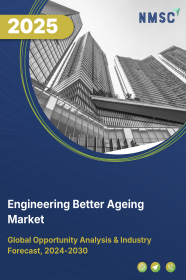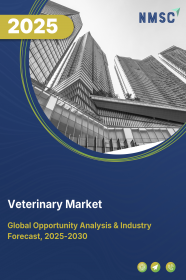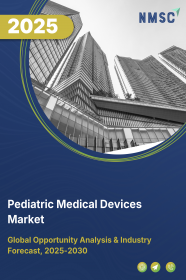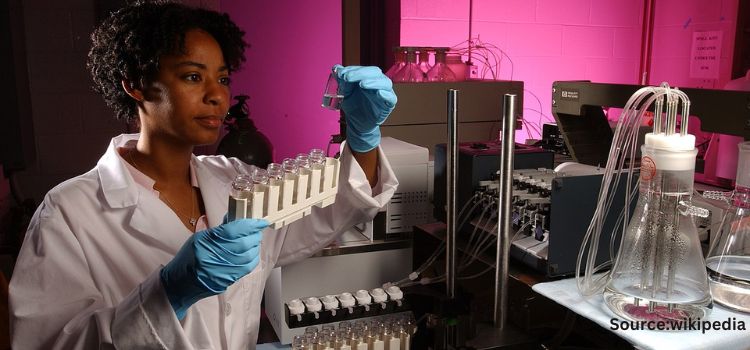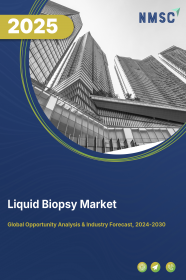
Liquid Biopsy Market by Product and Service (Assays Kits, Instruments, Reagents, and Services), Cancer Type (Lung, Colorectal, Breast, Liver, Prostate, and Others), Sampling Type (Blood Sampling Liquid Biopsy, Urine Sampling Liquid Biopsy, Saliva, and others), Circulating Biomarker (Circulating Tumor Cells (CTCs) Circulating Tumor DNA(CTDNA), Cell-Free DNA, Extracellular Vehicles (EVS), and Others), and Others - Global Opportunity Analysis and Industry Forecast 2023-2030
US Tariff Impact on Liquid Biopsy Market
Trump Tariffs Are Reshaping Global Business
Market Definition
The Liquid Biopsy Market size was valued at USD 4.51 billion in 2022 and is predicted to reach USD 15.21 billion by 2030 with a CAGR of 16.44% from 2023-2030. Liquid biopsy also known as fluid biopsy or fluid phase biopsy, a non-invasive fast technique, which helps to detect and diagnose a variety of cancers such as lung, liver, breast and others at an early stage.
The procedure of liquid biopsy is conducted by collecting blood samples to investigate different kinds of tumor material that include DNA, RNA and exosomes present in the blood. These tests also provide information on residual tumor cells, therapeutic efficacy and early detection of recurrence. With its ability to provide quick and accurate results, liquid biopsy holds potential in improving patient outcomes by enabling timely interventions and personalized treatment strategies.
Market Dynamics and Trends
Increasing prevalence of cancer owing to high consumption of tobacco, alcohol and unhealthy diet leads to surge in the number of cancer patients across the globe which is driving the growth of liquid biopsy market. Also, liquid biopsy technique offers several benefits such as early prognosis, therapy monitoring and detection of tumor heterogeneity by eliminating further need for surgery, which is expected to further propel the growth of liquid biopsy market.
Moreover, advancement in medical technology such as digital polymerase chain reaction (dPCR) is a commonly used technique in liquid biopsy analysis, it works by dividing a nucleic acid sample into thousands of parallel PCR reactions, reading each individually and then combining them into a single calculation that produce a very accurate reading of the DNA, which is further expected to drive the growth of liquid biopsy market.
However, high cost associated with the research and development in the clinics and laboratories to analyze liquid biopsy test are expected to restrain the growth of market during the forecast period. On the contrary, rapid development in next-generation sequencing (NSG) technology that is used in targeted panels for specific sensitive ctDNA mutation detection enabling screening for unknown variants is expected to create ample growth opportunities for the liquid biopsy market in the coming years.
Market Segmentations and Scope of the Study
The liquid biopsy market share is segmented on the basis of product and service, cancer type, sampling type, circulating biomarker, technology, application, end user, and geography. On the basis of product and service, the market is divided into assay kits, instruments, reagents and service. On the basis of cancer type, the market is classified into lung, colorectal, breast, liver, prostate and others. On the basis of sampling type, the market is categorized into blood sampling liquid biopsy, urine sampling liquid biopsy, saliva and others. On the basis of circulating biomarker, the market is bifurcated into circulating tumor cells (CTCs), circulating tumor DNA (CTDNA), cell-free DNA, extracellular vesicles (EVS) and others. On the basis of technology, the market is divided into polymerase chain reaction (PCR), next-generation sequencing (NGS), fluorescence in situ hybridization (FISH) and others. On the basis of application, the market is segmented into cancer therapeutic application, reproductive health and other therapeutic application. On the basis of end user, the market is classified into reference laboratories, hospitals and physician laboratories, academic & research centers and others. Geographic breakdown and analysis of each of the aforesaid segments includes regions comprising of North America, Europe, Asia-Pacific, and RoW.
Geographical Analysis
North America holds the lion share of liquid biopsy market and is expected to continue its dominance during the forecast period. This is attributed to high adoption of liquid biopsy techniques in hospitals and laboratories, academic and research centers in this region. For instance, in July 2022, BillionToOne Inc., launched oncology liquid biopsy products and further announced clinical research collaboration with University of California San Diegois (UCSD). This company launched its first oncology liquid biopsy products includes Northstar Select and Northstar Response. These enabled to allow clinicians to monitor the patient's response for treatment including late-stage cancers. Moreover, high cancer rates and early patient treatment in US and Canada contributes the growth of liquid biopsy market in this region. According to American Cancer Society, about 1.9 million cancer cases and 608,570 cancer deaths were diagnosed in US, in 2021.
On the other hand, Asia-Pacific is expected to show a steady rise in the liquid biopsy market due to rise in increasing government schemes to fund cancer treatment and rising number of diagnostic laboratories in this region. For instance, in the budget for financial year 2022-2023, the Australian Government funded 893.5 million USD to improve health outcomes & survival rates of life-threatening cancers by further building cancer treatment centers to diagnose the cancer at early stage.
Moreover, increasing number of cancer patients and the growing preference for non-invasive procedures among the people suffering from cancer such as lung, liver and stomach is expected to drive the liquid biopsy market growth in this region. For instance, in 2020, according to International Agency for Research on Cancer, Asia-Pacific reported 9, 503,710 new cancer cases and 5,809,431 cancer death rates.
Competitive Landscape
The liquid biopsy market trends comprising of various market players such as Bio-Rad Laboratories Inc., Biocept Inc., BillionToOne Inc., F. Hoffmann-La Roche Ltd., Qiagen N.V., Myriad Genetics, Thermo Fisher Scientific Inc., Guardant Health Inc., MDX Health SA. and Artemis DNA, Inc. These market players are adopting various approvals and partnership among businesses across various regions to maintain their dominance in the liquid biopsy market.
For instance, in March 2022, Guardant Health received Japanese regulatory approval for its Guardant360 CDx liquid biopsy test for tumor mutation profiling in patients. With this regulatory approval, Guardant Health accelerated the clinical adoption of liquid biopsy tests in Japan, enabling more patients to receive potentially life-changing precision medicines.
Moreover, in May 2022, Artemis DNA, Inc announced USD 250 million contract with Datar Cancer Genetics. This partnership agreement offered revolutionary new cancer liquid biopsy test that were commercialized and distributed by Artemis DNA in the USA and Vietnam markets.
KEY BENEFITS
-
The report provides quantitative analysis and estimations of the liquid biopsy market from 2023 to 2030, which assists in identifying the prevailing market opportunities.
-
The study comprises a deep dive analysis of the liquid biopsy market including the current and future trends to depict prevalent investment pockets in the market.
-
Information related to key drivers, restraints, and opportunities and their impact on the liquid biopsy market is provided in the report.
-
Competitive analysis of the players, along with their market share is provided in the report.
-
SWOT analysis and Porters Five Forces model is elaborated in the study.
-
Value chain analysis in the market study provides a clear picture of roles of stakeholders.
Key Market Segments
By Product and Service
-
Assay kits
-
Instruments
-
Reagents
-
Services
By Cancer Type
-
Lung
-
Colorectal
-
Breast
-
Liver
-
Prostate
-
Others
By Sampling Type
-
Blood Sampling Liquid Biopsy
-
Urine Sampling Liquid Biopsy
-
Saliva
-
Others
By Circulating Biomarker
-
Circulating Tumor Cells (CTCs)
-
Circulating Tumor DNA(CTDNA)
-
Cell-Free DNA
-
Extracellular Vesicles (EVS)
-
Others
By Technology
-
Polymerase Chain Reaction (PCR)
-
Next-Generation Sequencing (NGS)
-
Fluorescence in Situ Hybridization (FISH)
-
Others
By Application
-
Cancer Therapeutic Application
-
Reproductive Health
-
Others
By End User
-
Reference Laboratories
-
Hospitals and Physician Laboratories
-
Academic and Research Centers
-
Others
By Region
-
North America
-
U.S.
-
Canada
-
Mexico
-
-
Europe
-
UK
-
Germany
-
France
-
Italy
-
Spain
-
Denmark
-
Netherlands
-
Finland
-
Sweden
-
Norway
-
Russia
-
Rest of Europe
-
-
Asia-Pacific
-
China
-
Japan
-
India
-
South Korea
-
Australia
-
Indonesia
-
Singapore
-
Taiwan
-
Thailand
-
Rest of Asia-Pacific
-
-
RoW
-
Latin America
-
Middle East
-
Africa
-
Key Players
-
Bio-Rad Laboratories Inc.
-
Biocept Inc.
-
BillionToOne Inc.
-
F. Hoffmann-La Roche Ltd.
-
Qiagen N.V.
-
Myriad Genetics
-
Thermo Fisher Scientific Inc.
-
Guardant Health Inc.
-
MDX Health SA.
-
Artemis DNA Inc.

















 Speak to Our Analyst
Speak to Our Analyst



